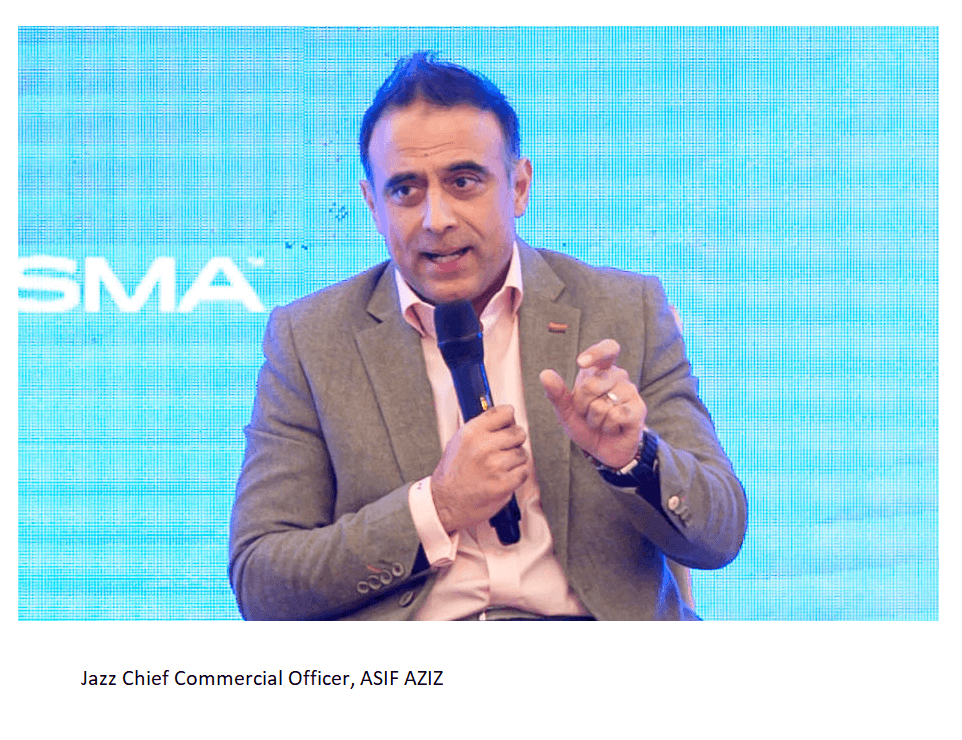
Islamabad: “Increase in smartphone usage directly impacts the economy. As per GSMA, by 2023, the economic contribution of the mobile industry in Pakistan will reach $24 billion or 6.6 percent of the GDP. Ministry of Information Technology and Telecommunications, Pakistan Telecommunications Authority, Jazz, and other players in the industry are committed to making this a reality by working together to provide broadband in every household and a smartphone in every hand ”, said Asif Aziz, CCO Jazz.
These remarks were made during a panel discussion at the “Smartphone for All” event by Kistpay and supported by GSMA. The session was moderated by Jeanette Whyte, Head of Public Policy, APAC, GSMA. Panelists alongside Asif included Haaris Mahmood, CEO Universal Service Fund; Irfan Wahab, CEO Telenor Pakistan; Hatem Bamatraf, CEO Ufone.
Highlighting the importance of smartphones as a crucial enabler in today’s technology-driven world, Asif pointed out that smartphones and broadband are giving rise to a new digital economy that is allowing people to connect with the world and earn their livelihoods through numerous opportunities. “From starting businesses to launching home-cooking channels, mobile broadband has a transformational power to positively impact the lives of millions. This also helps us build our IT exports and puts Pakistan on the map for tremendous growth.”
In Pakistan, however, smartphone adoption is only 57%, which means that about 46% of cellular subscribers still don’t use mobile broadband. Asif explained that the main impediment to the wider adoption of smartphones in Pakistan is affordability. Pakistan’s telecom sector is the highest taxed in the world. With 19.5% GST and 15% WHT, using broadband costs telecom users 34.5% in taxes alone. Moreover, hefty import duties on smartphones further discourage their use and adoption.
To facilitate the transition to mobile broadband for an additional 50 million people in the next three years, Asif Aziz, CCO Jazz suggested that the government needs to discontinue the import and local production of 2G phones, prioritize local assembly of 4G-enabled smartphones, develop and implement a regulatory cover that enables telecom companies to offer smartphones on installments, and reduce withholding tax on essential telecom services from 15% to 8%. This will help boost digital adoption and unlock tremendous socio-economic opportunities for the masses.